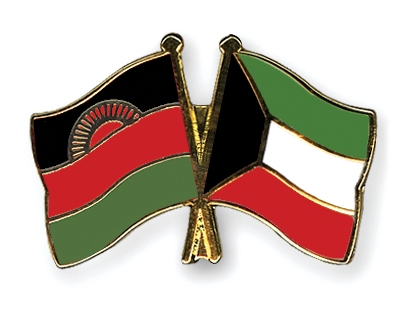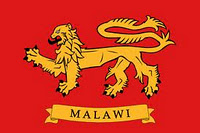Once upon a time there was a beautiful and peaceful country called Malawi in southern Africa. Despite its natural beauty, the country was poor and yet so corrupt.
Corruption, others argued, was a way of life in this country or a tradition if you may like and so no powerful organisation, even the United Nations Security Council, could wipe this corruption out of this country.
Official statistics said one third of the budgetary resources were going down the drain; sorry, were going into the private pockets of public officers and politicians because of corruption and sheer theft.
Government officials were diverting public money into their private accounts. There was also rampant abuse of office.
Top government officials were setting up bank accounts and becoming sole signatories to the accounts without the knowledge of the Minister of Finance. Public servants were claiming 50 days allowances in a month of 30 days.
The top civil servants were also borrowing money from commercial banks without the knowledge of the Minister of Finance. Some leaders of the country were literally banking donor money meant for poverty alleviation programmes into their private bank accounts.
In short, the country’s public coffers were being looted and plundered at will, yet poverty and economic hardships bit its people mercilessly. The worst hit were rural people who continued living in grass-thatched and mud walled huts instead of iron-roofed and cement floored houses.
The rural people drank water from swamps and cesspools together with their pets and wild animals as there was no piped water. Most of them walked with bare feet as they could not afford shoes. These people ate at most one proper meal a day, instead of the standard three meals a day.
Yet corruption flourished in this country unabated.
As an admission of this Man-made evil, the Malawi Government established the Anti-Corruption Bureau (ACB) with a vision to create a corrupt free Malawi.
The mandate of the bureau included investigating complaints of alleged or suspected corrupt practices and to prosecute offences under the Corrupt Practices Act.
However, even with the ACB in place, with visible offices established in the major cities of the country, Malawians did not relent in plundering public resources through corruption.
The bureau was rendered toothless as each and every president who came to power wanted to appoint his own ACB director knowing that a servant cannot probe his master.
Even though the ACB director reported to Parliament, this arrangement was just there on paper as behind the scenes, the ACB director got verbal instructions from the president and other influential politicians in government to intimidate, weaken and punish political opponents.
As a result of this interference, the ACB entrenched a culture of mainly investigating and prosecuting only opposition politicians who had allegedly committed offences while in government.
The ACB effectively spared corrupt government fat cats and if it investigated them, it never brought them to court and if it at all brought them to court, it never pursued the cases vigilantly such that the cases died a natural death.
In this country, the only cases the bureau successfully pursued and got convictions for were those of police constables who got K2 ,000 bribes to free theft suspects on bail, or traditional chiefs who diverted fertiliser subsidy coupons ,while government top dogs who had plundered millions of kwacha drove freely around the country in posh Mercedez Benz saloons and other equally luxurious fuel guzzlers.
Malawians wailed and wailed over the politicisation and ineffectiveness of the bureau, but their cries were never heard as powerful people in the country had connived to keep the bureau incapacitated.
The bureau continued targeting only small fish like Usipa while leaving big fish like Chambo (Tilapia) to swim freely.
The bureau still remained toothless, powerless and ineffective to tackle corruption.
Amid this plunder of billions of taxpayers’ money which could help eliminate rampant poverty in the country, the government also deliberately strangulated the organisation financially.
It pretended it did not have enough money to fund the bureau , and instead it begged money from donors to fight home grown corruption.
The kindest government was Britain, which sent millions of Pound Sterlings to Malawi to fight corruption committed not by British citizens resident in the African country, but committed by the Malawians themselves.
But even with all this benevolence, the Malawi Government continued to cripple the operations of the Bureau, by either underfunding it or leaving it without a director and deputy so that it did not investigate or take any corrupt untouchables to court.
The British, who had been kind enough to fund the organisation all along, had no choice but to suspend funding to the organisation until such a time the bureau director was appointed.
However, the government was afraid to appoint a bureau director as the name would have to be approved by a parliamentary Public Appointments Committee (Pac) dominated by angry opposition figures who were in the previous government.
And realising that the ACB by its nature, targets corrupt officials who are in opposition, the government of Malawi was dillydallying to select names of lawyers to present before such a committee.
The government knew the committee would definitely shoot down the names and frustrate the appointment process left and right so that the bureau only existed on paper, but was effectively incapable of executing its functions.
The Pac members were aware that by approving an ACB director, they would be shooting themselves in the foot as the new director would soon zero in on them or their colleagues in the opposition, who had plundered state coffers while in government.
Such was the state of affairs of the Anti-Corruption Bureau in the peaceful and beautiful country called Malawi. And Malawians continued wailing and wailing and wailing in poverty.

.jpeg&w=60&q=100&h=60)




.jpeg&w=60&q=100&h=60)






Wow, superb blog format! How lengthy have you ever been blogging
for? you make running a blog look easy. The overall look of your site
is great, let alone the content material! You can see similar
here sklep online